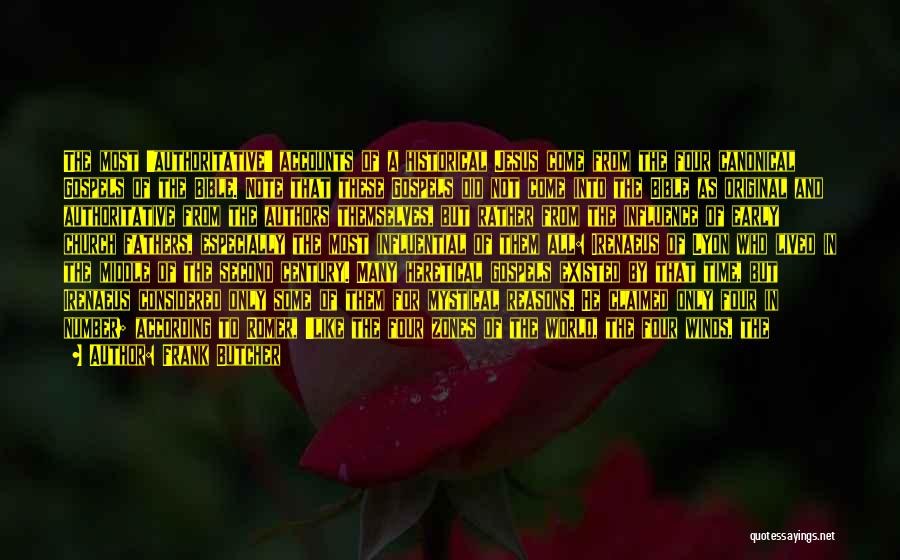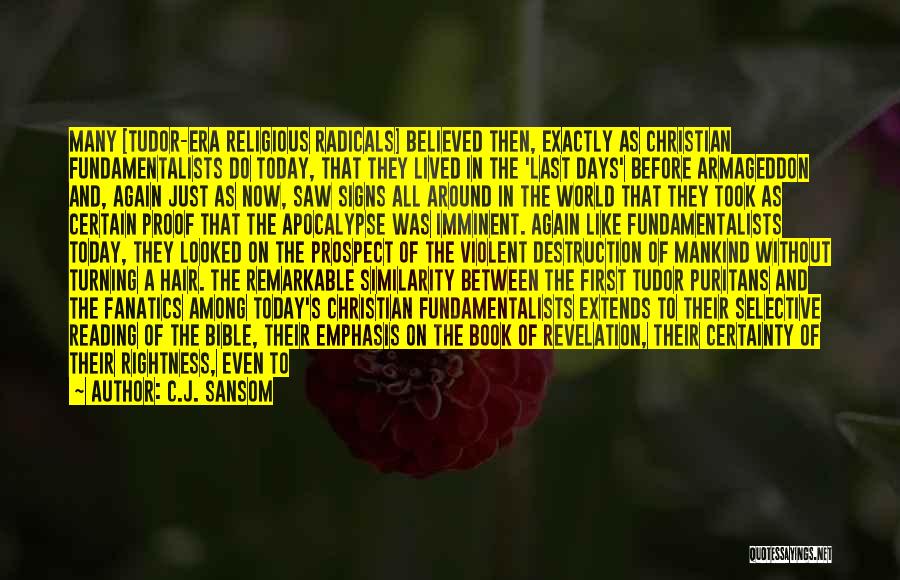Early Church Fathers Bible Quotes & Sayings
Enjoy reading and share 2 famous quotes about Early Church Fathers Bible with everyone.
Top Early Church Fathers Bible Quotes

The most 'authoritative' accounts of a historical Jesus come from the four canonical Gospels of the Bible. Note that these Gospels did not come into the Bible as original and authoritative from the authors themselves, but rather from the influence of early church fathers, especially the most influential of them all: Irenaeus of Lyon who lived in the middle of the second century. Many heretical gospels existed by that time, but Irenaeus considered only some of them for mystical reasons. He claimed only four in number; according to Romer, 'like the four zones of the world, the four winds, the four divisions of man's estate, and the four forms of the first living creatures
the lion of Mark, the calf of Luke, the man of Matthew, the eagle of John. — Frank Butcher

Many [Tudor-era religious radicals] believed then, exactly as Christian fundamentalists do today, that they lived in the 'last days' before Armageddon and, again just as now, saw signs all around in the world that they took as certain proof that the Apocalypse was imminent. Again like fundamentalists today, they looked on the prospect of the violent destruction of mankind without turning a hair. The remarkable similarity between the first Tudor Puritans and the fanatics among today's Christian fundamentalists extends to their selective reading of the Bible, their emphasis on the Book of Revelation, their certainty of their rightness, even to their phraseology. Where the Book of Revelation is concerned, I share the view of Guy, that the early church fathers released something very dangerous on the world when, after much deliberation, they decided to include it in the Christian canon.
[From the author's concluding Historical Note] — C.J. Sansom





